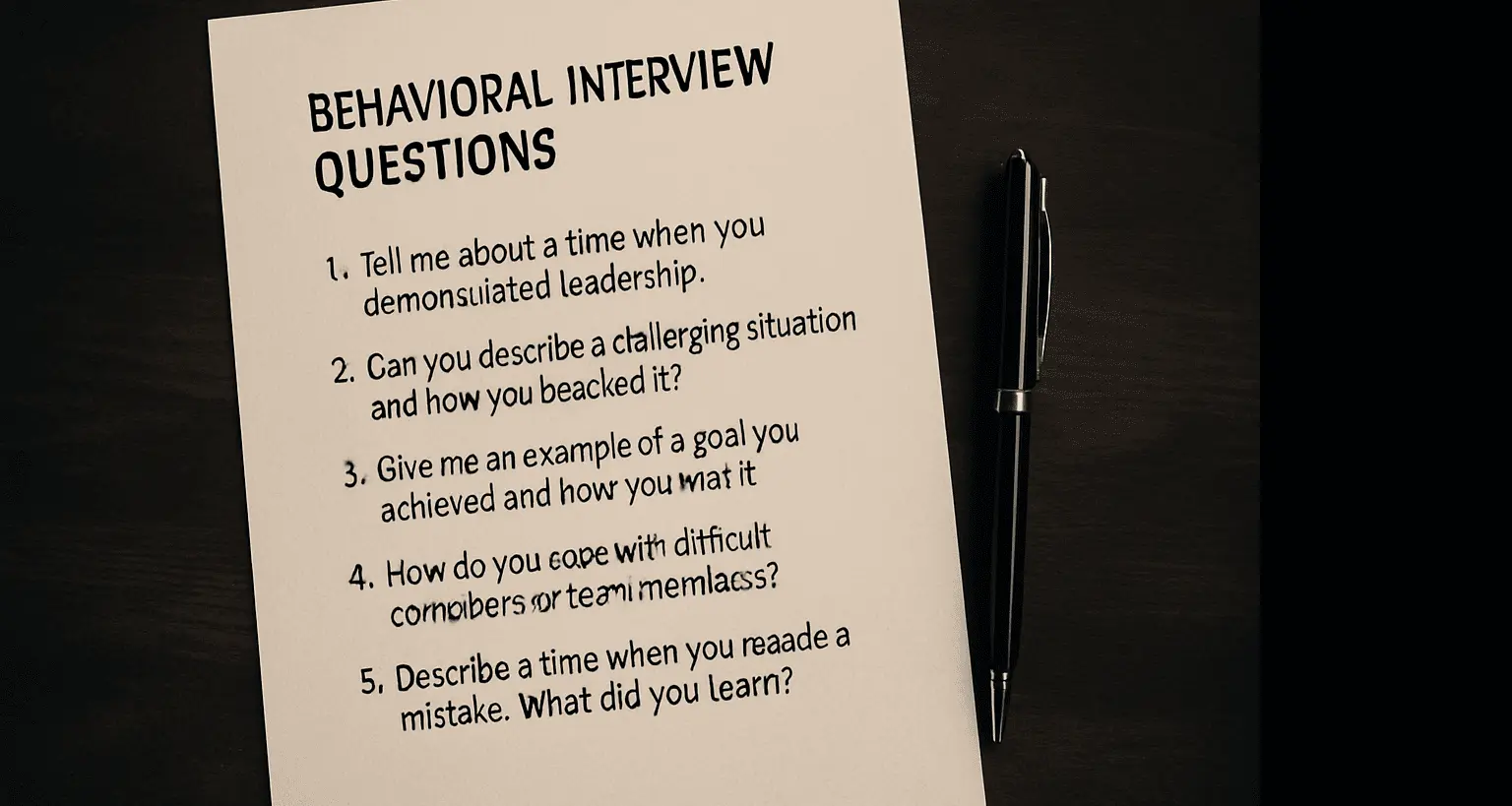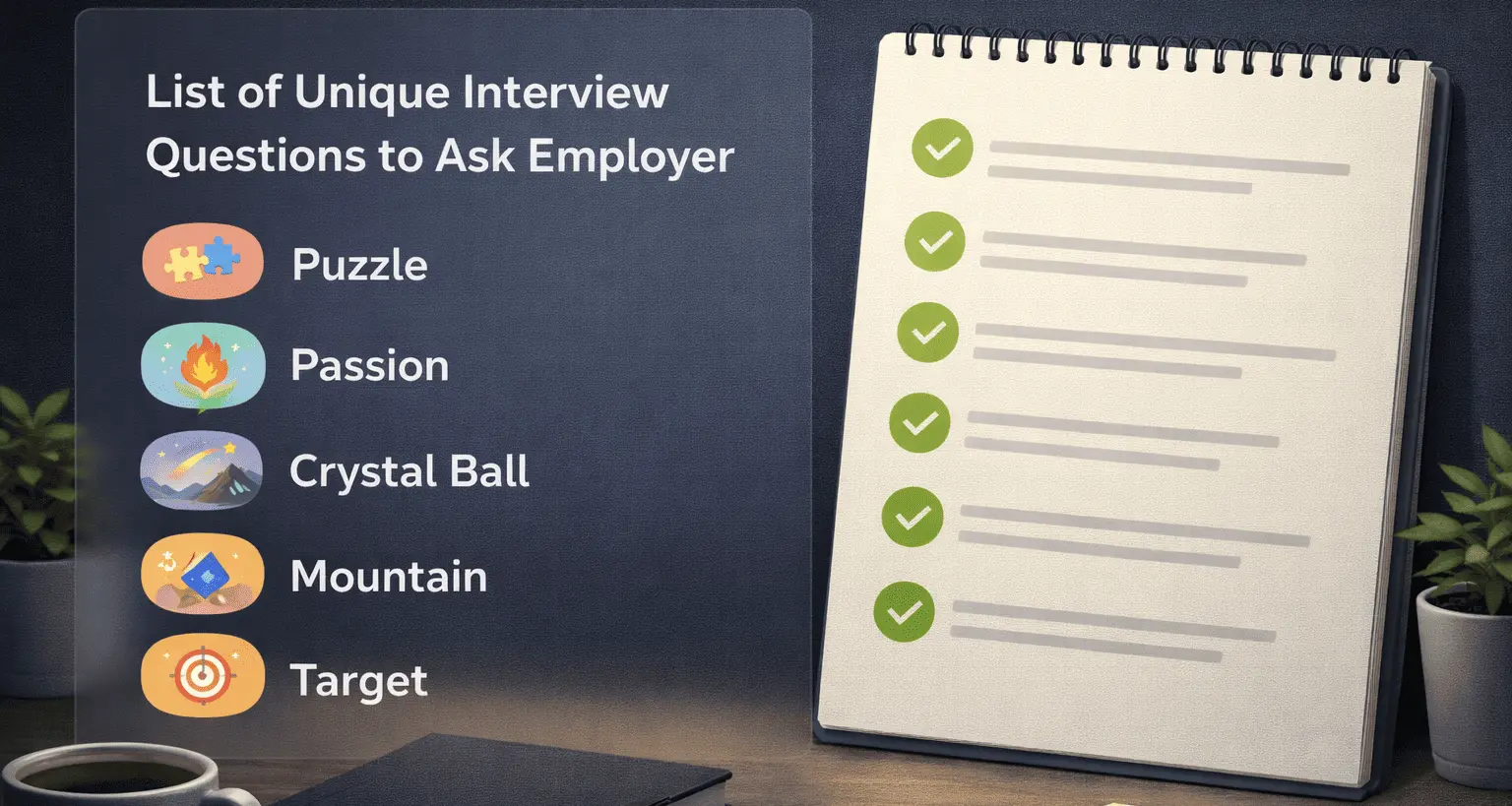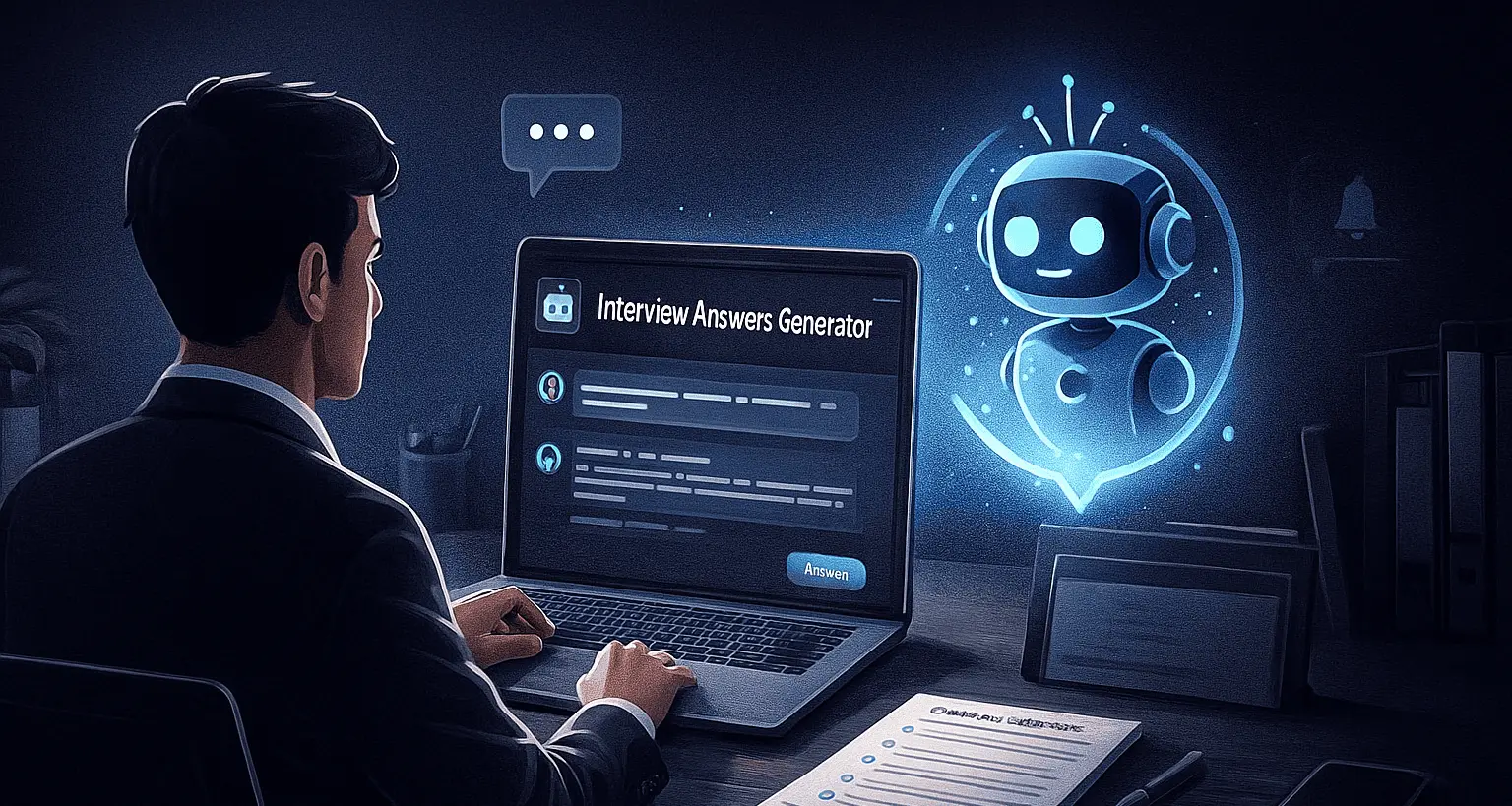Mastering behavioral interview questions is one of the most reliable ways to stand out in any hiring process. These prompts reveal how you think, collaborate, solve problems, and respond when things get unpredictable. Employers rely on them because past behavior is still one of the strongest predictors of future performance.
This guide walks you through common behavioral interview questions, explains what hiring teams hope to uncover, and provides sample answers that feel genuine—not robotic. You'll also learn practical strategies to shape your responses with clarity and confidence. For a deeper framework, check out our guide on the STAR interview method, which is essential for structuring compelling behavioral answers.
Why Behavioral Interview Questions Matter
Recruiters ask behavioral interview questions because real stories reveal your judgment, adaptability, and communication style. When you talk through past challenges, you demonstrate leadership instincts, emotional intelligence, and problem-solving patterns that no resume bullet can capture.
You don’t need perfect stories—just honest ones that show how you think and how you grow from experience.
How to Answer Behavioral Interview Questions
The STAR method (Situation, Task, Action, Result) is the simplest and most repeatable way to structure your answers. It keeps your explanations clear and focused instead of drifting into unrelated background information.
- Situation: Set quick context.
- Task: Describe your responsibility.
- Action: Explain the steps you took.
- Result: Share measurable impact.
Focus on your contribution, not the team's. Interviewers want clarity about your specific role and decisions.
Common Behavioral Interview Questions With Answers
1. Tell me about a time you worked through conflict.
What they’re looking for: Emotional maturity and constructive communication.
Example: “During a sprint, a teammate and I disagreed on a user flow. I suggested testing both versions with real users. We combined the best ideas, reduced drop-offs by 11%, and maintained good rapport.”
2. Describe a time you took initiative.
Example: “Our onboarding materials were outdated, so I revamped them and added clear visuals. New hire questions dropped nearly 40% the next month.”
3. Tell me about a mistake you made.
Example: “I underestimated a timeline early in my career. I adopted buffer planning afterward and consistently delivered on time.”
4. Describe a time you influenced without authority.
Example: “I demoed a shared dashboard that eliminated manual tracking. The team adopted it within a week.”
5. Describe a stressful situation and how you handled it.
Example: “Critical report visuals broke before a client call. I simplified the key points and delivered a clear narrative. The meeting still succeeded.”
Leadership-Focused Questions
6. Tell me about a time you led through uncertainty.
Highlight calm decisions, prioritization, and communication.
7. Describe a time you gave difficult feedback.
Use a direct but empathetic example with a positive outcome.
Teamwork Questions
8. Tell me about a time you supported a teammate.
Show collaboration and reliability under pressure.
9. Describe a time you managed a difficult stakeholder.
Demonstrate structure, clarity, and conflict prevention.
Problem-Solving Questions
10. Tell me about a time you solved a complex problem.
Use specifics and measurable improvement.
11. Describe a time things didn’t go as planned.
Focus on adaptability and course correction.
Advanced Strategies to Improve Your Answers
- Use numbers when possible: “reduced issues by 20%.”
- Choose stories that match the role.
- Keep your tone conversational.
- Add one sentence of reflection at the end.
- Prepare 6–8 reusable stories for future behavioral interview questions.
Practice Like a Real Interview
Rehearsing out loud is essential. You can also use a mock interview platform to simulate timing and follow-up questions. The pressure feels more realistic, and your pacing, clarity, and confidence improve quickly.
Master Behavioral Questions
You don’t need flawless stories to excel in behavioral interview questions. You need structure, self-awareness, and the ability to communicate impact clearly. When you share stories that reveal how you think and adapt, you become the kind of candidate teams trust and remember.







